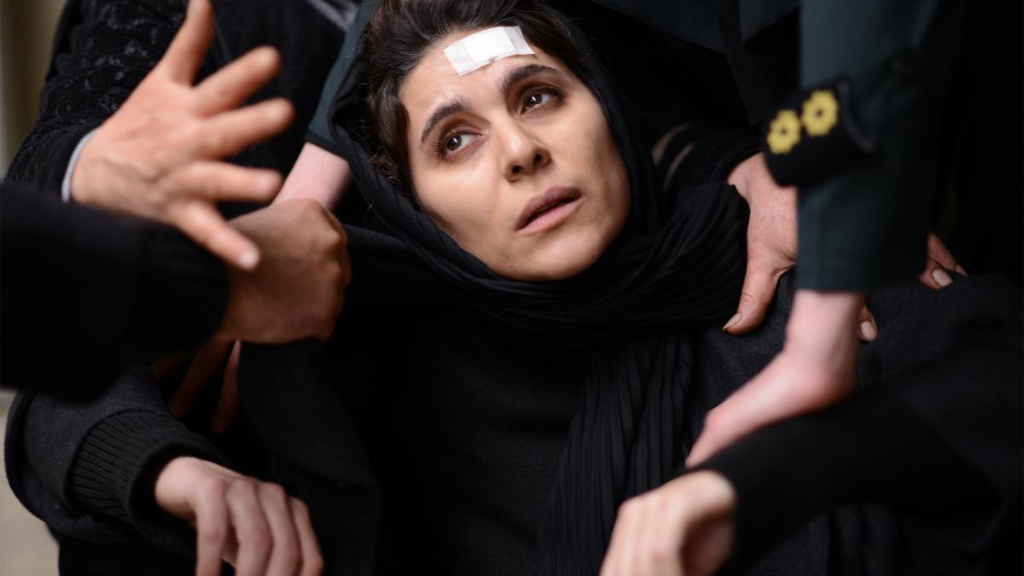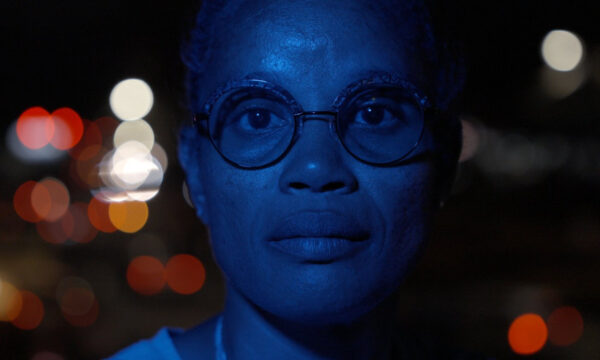180° Rule

Online on BFI Player from 9th October 2020 6.30pm until 12th October 2020 6.30pm
It isn’t clear to what the title of this heavy-handed drama is actually referring until the closing sequence – but when the switch clicks, it goes off with a bang.
Exploring the struggles that women still face in Iranian society today, 180° Rule delves into the family life of a school teacher named Sara (Sahar Dolatshahi), who participates daily in a seemingly endless fight for survival against her uptight and downright shameful husband Hamed (Peiman Jamshidi). Her partner is ingrained in ruthless and historic societal ideologies, making the protagonist a victim in the process. When her husband travels away, Sara and her daughter Raha travel to a beautiful family wedding that they were banished from by Hamed and enjoy the festivities. However, when a sudden tragic accident strikes, the educator finds her world crumbling around her, meaning she and her relatives must tell the ultimate lie to her spouse for their own safety, all the while swallowing an interminable grief.
Without doubt, the premise of 180° Rule is incredibly exciting as it explores a number of themes and issues that are frequently left unaddressed in certain communities. In Farnoosh Samadi’s feature debut, an enticing spectacle unfolds throughout the first act. There are some strong performances from the get-go: Dolatshahi, in particular, presents Sara as one of the more captivating heroines we may witness on the silver screen this year, blessing the protagonist with a powerful presence and commanding defiance to battle her controlling husband with, as well as a deeply loving heart. As narrative tensions bubble up in the film’s opening 20 minutes, the spectator expects it to boil over in a satisfying, fiery apex. It is however at this point that the anticipation one experiences at the start begins to dissipate as the plot takes a different, more emotional and arguably non-realistic path.
When grief strikes Sara, the audience witnesses her pain. Viewers definitely see her agony in what is truly a shocking turn of events, resulting in her deafening silence that then proceeds for the remainder of the film. But while it is devastatingly powerful, this lack of speech severs ties with possible character developments in the process, burning multiple bridges and raising question marks over what our leading lady can possibly do next.
The plot gets lost in its idea of who the onlooker should be rooting for once the characters begin lying to each other about how such a terrible incident occurred. Perhaps the audience is not meant to side with one individual – or anyone at all for that matter. But it is this lack of connection that ultimately leads this feature to be a wandering, painstaking expedition with a more-than-sinister soundtrack.
At a run time of just over 80 minutes, it could be argued that the movie might have benefitted from being slightly longer. The plot, albeit stretched already, could then dig deeper into family relationships and the backstories it struggles to unearth in its current form. Nonetheless, 180° Rule is worth a watch for its intensity and striking view of what life in Tehran can be like for some, where stories of redemption are unfortunately few and far between.
Guy Lambert
180° Rule does not have a UK release date yet.
Read more reviews and interviews from our London Film Festival 2020 coverage here.
For further information about the festival visit the official BFI website here.
Watch the trailer for 180° Rule here:

























Facebook
Twitter
Instagram
YouTube
RSS